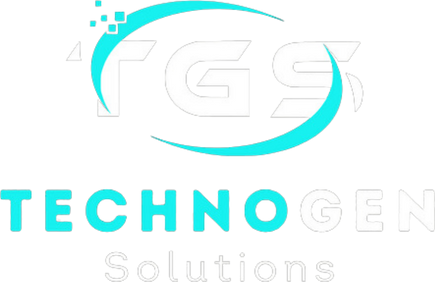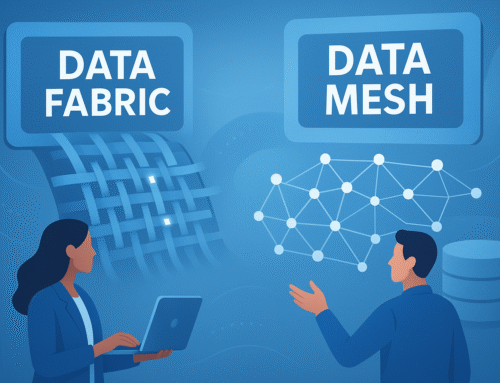Although automation and predictive analytics have already changed how businesses function, artificial intelligence is not the end of the story. Agentic AI is the next big thing. Agentic AI goes beyond traditional AI, which merely reacts to commands or carries out preset tasks. To accomplish difficult tasks, it can plan, decide, and act on its own. This change is nothing short of revolutionary for businesses. This post will explain what agentic AI is, how it varies from other types of AI, and why it is expected to revolutionize business operations in 2025 and beyond.
Agentic AI: What is it?
The term “agentic AI” describes autonomous AI agents, which are programs that can act independently, set goals, and complete multi-step tasks without continual human input.Think of it as an intelligent coworker who recognizes issues, comes up with solutions, and implements them effectively rather than passively waiting for orders.
Instances of Agentic AI in Operation:
An artificial intelligence (AI) system that runs your supply chain without human supervision, forecasting demand, placing orders, and negotiating with suppliers. A customer service representative who not only responds to inquiries but also foresees follow-up inquiries, proactively resolves issues, and grows as a result of interactions. AI-powered project managers that assign resources, coordinate teams, and make sure deadlines are fulfilled.
The Differences Between Traditional AI and Agentic AI
Conventional AI has always needed human supervision, commands, or prompts. A chatbot, for instance, responds to queries but waits for users to start discussions. Trends are displayed by a predictive tool, but no action is taken. Agentic AI shifts that equation. It can: Get context – It is aware of the larger objective, not merely the next step. Plan and respond – It can form a plan and modify it as new information becomes available. Act on its own – It doesn’t merely recommend actions; it takes them. Learn without ceasing – It gets better at decision-making over time by learning from results. This jump makes Agentic AI less of a tool and more of a business process strategic partner.
Why Companies Require Agentic AI in 2025
The international business landscape is becoming more complex—rapid supply chains, customer expectations, economic transformations, and digital disruption. Agentic AI provides a competitive advantage in such an environment by: Minimizing Dependence on Human Resources: It is equipped to perform processes that involve long repetitive, multi-step tasks so that employees can concentrate on more innovative and strategic work. Enhancing Efficiency: Autonomous decision-making means that challenges such as inventory shortages or customer complaints are addressed more quickly. Scalable: Agentic AI can work autonomously, without exhaustion, on a million tasks in parallel. Improving Customer Experience: Agentic AI can proactively support/download problems, increasing satisfaction and loyalty. Enhancing Innovation: With routine processes completed, more resources can be utilized for innovation and growth.
Key Applications of Agentic AI in Business Processes:
Customer Service- imagine a customer reaches out to your company about a billing error. A traditional chatbot would, in the best-case scenario, describe what the bill is for. You can think of a more advanced Agentic AI. This system would understand the problem, check for issues, issue the refund, send a confirmation (without the human having to do it), and update account records all by itself. Supply Chain Management- An Agentic system can monitor inventory levels, recognize shipping delays, reroute orders, all while contacting alternative suppliers regularly, to keep downtime low and moving the product. Human Resources- An Agentic system can assist you with a recruitment pipeline from screening resumes, scheduling interviews, and tracking employees. Finance and compliance- An agentic system can automatically detect fraudulent transactions and audit systems, completion of compliance reports, and, even better, it can assist with going through investment portfolios and compliance. Marketing and Sales- beyond understanding data from customer interaction, agentic AI will design new campaigns and go through team talks, analyze the results, and do automatic targeting to reach the customer at the right time.
Challenges for Businesses to Consider
While Agentic AI provides significant value to businesses, it is important to consider the challenges that businesses will need to address: Ethical Considerations: Autonomous decision-making must be fair and transparent. Data Privacy: Dealing with sensitive data at scale must be done by using an appropriate security framework. Change Management: If employees don’t feel trained and involved during the transition to AI systems, they may resist. Over-reliance: Businesses must ensure that human oversight remains a regular part of critical decision-making practices. Addressing these challenges in advance will lead to organizations getting the most return on emerging Agentic AI technologies.
The Future of Agentic AI
Through 2025 and beyond, we will begin to see Agentic AI being integrated into software systems, cloud systems, and tools that we use to conduct business regularly. Imagine a CRM system that not only identifies leads but actively pursues them, or an ERP platform that corrects its own inefficiencies? As these technologies/policies become increasingly intelligent, it’s clear that early adopters will have a strong competitive advantage when these technologies become ubiquitous. Industry analysts tracking this trend have suggested that businesses utilizing Agentic AI applications will have efficiency increases of up to 40% in the next decade.
Why Techogen Solutions is Paying Much Attention to This Trend
At Techogen Solutions, we see Agentic AI as more than just another buzzword. We see it as fundamentally a game-changing shift in how organizations will be able to operate within a coordinated system in the digital economy. Businesses that understand and utilize Agentic AI early will not just reduce costs, they will unlock new opportunities for growth, innovation, and customer satisfaction.
Concluding remarks
The next development in artificial intelligence is called agentic AI. It redefines what is feasible in business processes by shifting from execution to strategy and from reactive to proactive. For businesses, this is a survival tactic in the rapidly evolving digital landscape, not just a fad. Businesses that use agentic AI now will dominate the market tomorrow.


Leave A Comment